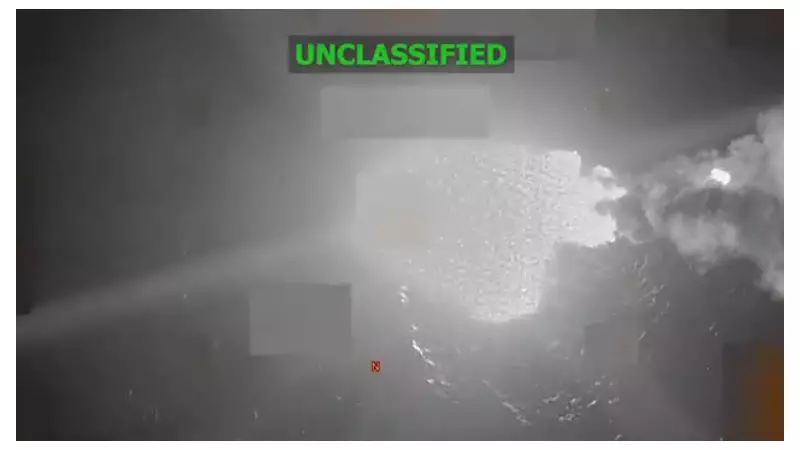
In a dramatic hardening of US counter-narcotics strategy, military officials have declared they will treat Caribbean drug smugglers with the same severity as Al-Qaeda terrorists. The revelation comes as US Southern Command confirms conducting another lethal strike against suspected narcotics traffickers in international waters.
Admiral Kevin Koehler, deputy commander of US Southern Command, delivered the uncompromising message during a press briefing, stating unequivocally: "We will treat them exactly how we treated Al-Qaeda." This represents a significant escalation in rhetoric and tactics against maritime drug smuggling operations.
The latest operation, conducted on Tuesday, targeted a vessel described as a "stateless" smuggling boat navigating through the Caribbean Sea. While specific casualty figures remain undisclosed, military officials confirmed the strike resulted in multiple fatalities among the suspected traffickers.
A Strategic Shift in Counter-Narcotics Warfare
This development signals a fundamental transformation in how US authorities approach drug interdiction at sea. Previously focused primarily on seizure and arrest operations, the policy now appears to embrace lethal force as a primary tool against suspected smugglers operating beyond territorial waters.
Admiral Koehler emphasised the strategic reasoning behind this aggressive posture, noting that drug trafficking organisations "are making billions and billions of dollars" while undermining regional stability. The comparison to terrorist networks suggests American authorities now view these criminal enterprises as national security threats rather than merely law enforcement challenges.
International Waters, Unprecedented Measures
The operations occur in what authorities term "the transit zone" - vast stretches of international waters between South American source countries and North American consumer markets. This legal grey area has historically complicated enforcement efforts, but the new approach appears to bypass traditional jurisdictional constraints.
Military spokespersons defended the legality of these actions, citing the vessels' "stateless" status and the global nature of the narcotics threat. However, the policy raises significant questions about international law and the rules of engagement against non-state criminal actors.
This latest strike follows a pattern of increasingly aggressive US naval interventions in Caribbean waters, marking what appears to be a sustained campaign rather than isolated incidents. As the Biden administration confronts ongoing domestic opioid crises, pressure mounts for decisive action against international drug supply chains.
The long-term implications of treating drug traffickers as equivalent to terrorist organisations remain uncertain, but the immediate message from US Southern Command is clear: Caribbean smuggling operations now face lethal consequences previously reserved for America's most dangerous enemies.





